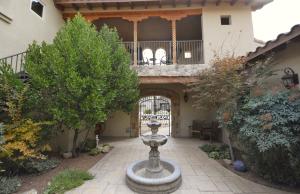Tips for the First Time Home Buyer

Mortgage interest rates being as low as they have been have spurred many into purchasing their first home. If you or someone you know is planning on purchasing a home, here are a few tips that might help with the process.
Know What You Can Afford
One of the hardest parts of buying a home is figuring out what you can afford. First-time buyers sometimes rely on the amount the bank is willing to lend, other buyers will use a mortgage calculator to crunch their numbers. But banks are often willing to lend much more than you are able to afford, and mortgage calculators don’t always give all the information necessary to make a decision. To learn your budget, start with the basics.
How Much Can You Pay?
Instead of concentrating on the purchase price or offers from lenders, figure out how much you are able to spend on a mortgage payment each month. A common way of determining how much you can spend is that your mortgage should be between 25 and 30 percent of your income, though 30 percent is often too high for many buyers. The best way to find out is to add up all of your monthly bills and expenses and look at estimates for the cost of utilities for the home you plan on purchasing. Consult local service providers or your real estate agent for specific rates. Don’t forget to add the cost of living changes, price of gas, groceries, and other necessary items. These can change radically if you’re moving to a different location. Another cost that is often overlooked is long-term savings, some assume that future wage increases will allow them to save money later on. Do not make the mistake of depending on uncertain circumstances.
Get the Right Balance on Your Down Payment
Next in the process is determining how much you can put down on the home. Save as much as you possibly can, but make sure to set aside money for inspections, appraisals, moving expenses and closing costs. If you can manage to set aside enough to put 20% down, you will be much more appealing to lenders. Furthermore, loan products with a 20 percent down payment requirement are much easier to get if your credit is less than perfect. If you can’t save that much, don’t worry. There are plenty of ways to buy a house with little to no down payment, though your interest rates might be higher and you’ll have to pay for private mortgage insurance.
Private Mortgage Insurance?
Private mortgage insurance or PMI is the protection lenders use against risky buyers. Usually buyers who put down less than 20 percent have to pay PMI monthly as part of the mortgage payment. As the down payment decreases, the PMI rates go up. Speak to as many lenders as you possibly can to learn what rates you can expect and make sure you ask how long you will have to pay PMI. Some loans, like those backed by the Federal Housing Administration, will require payments on PMI for the full term of the loan. Other options will allow you to cancel PMI after you’ve paid enough towards the main balance.
Does the Interest Rate Make a Difference?
The interest rates on a loan can make or break the deal. Even a slightly higher rate can add to a monthly payment.
If you’re ready to buy your first home, contact The Sandi Pressley Team to get the process started.
Have An Awesome Week!
Sandi's Hot Home Listing
 9405 Black Farm NW, Albuquerque
9405 Black Farm NW, Albuquerque
Price: $1,175,000 Beds:5 Baths: 1 Square Feet: 5,005
Current owners built this home, they oversaw each and every detail of this very special Mission Style Home, the meticulous attention to detail shows. A rare find, gracious entry courtyard leads to a separate guest suite, with a private balcony. Main residence features a chef's kitchen, and a gracious floorplan that opens to a large covered and heated patio. Fully equipped outdoor kitchen.
AND HERE'S YOUR MONDAY MORNING COFFEE!!





